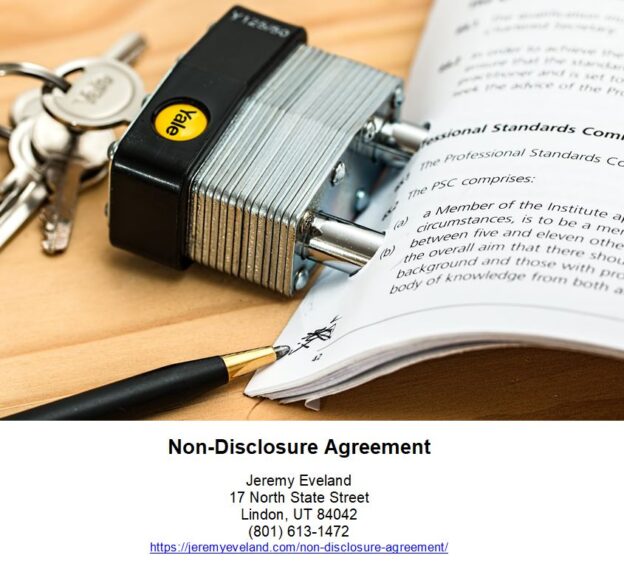-
Attorney at Law
- Introduction
- Examining the Different Types of Assignable Rights
- The Impact of Assigning Rights on Third Parties
- What is the Legal Definition of an Assignment of Rights
- How to Draft an Effective Assignment of Rights Agreement
- Analyzing the Risks of Assigning Rights
- Examining the Benefits of Assigning Rights
- Understanding the Legal Implications of Assigning Rights
- Why You Should Hire a Lawyer for an Assignment of Rights
“Secure Your Rights with Assignment of Rights – Protect Your Future!”
Introduction
Assignment of Rights is a legal concept that allows a person or entity to transfer their rights and obligations to another person or entity. This concept is commonly used in contracts, leases, and other legal documents. It is important to understand the implications of assigning rights and obligations, as it can have a significant impact on the parties involved. This article will provide an overview of the concept of Assignment of Rights, including its purpose, types, and legal implications.
Examining the Different Types of Assignable Rights
Assignable rights are legal rights that can be transferred from one party to another. These rights can be used to protect the interests of both parties involved in a transaction. There are several different types of assignable rights, each with its own unique characteristics and implications.
The first type of assignable right is a contractual right. This type of right is created when two parties enter into a contract. The contract outlines the rights and obligations of each party, and the assignable right is the right to enforce the terms of the contract. This type of right is often used in business transactions, such as when a company assigns the right to receive payment from a customer to a third party.
The second type of assignable right is a property right. This type of right is created when a person or entity owns a piece of property. The owner of the property has the right to use, transfer, or sell the property as they see fit. This type of right is often used in real estate transactions, such as when a homeowner assigns the right to receive rent payments from a tenant to a third party.
The third type of assignable right is an intellectual property right. This type of right is created when a person or entity creates a unique work, such as a book, song, or invention. The creator of the work has the right to control how the work is used, transferred, or sold. This type of right is often used in the entertainment industry, such as when a musician assigns the right to receive royalties from a song to a third party.
Finally, the fourth type of assignable right is a personal right. This type of right is created when a person or entity has a personal interest in a particular situation. For example, a person may assign the right to receive a portion of an inheritance to a third party. This type of right is often used in family law matters, such as when a parent assigns the right to receive child support payments to a third party.
Assignable rights are an important part of many legal transactions. It is important to understand the different types of assignable rights and how they can be used to protect the interests of both parties involved in a transaction.
The Impact of Assigning Rights on Third Parties
The assignment of rights to third parties is a legal concept that can have a significant impact on the parties involved. It is important to understand the implications of assigning rights to third parties, as it can have a major effect on the rights and obligations of the parties involved.
When a right is assigned to a third party, the assignor (the party assigning the right) transfers the right to the assignee (the party receiving the right). This means that the assignee now has the right to exercise the right that was assigned to them. This can have a major impact on the assignor, as they no longer have the right to exercise the right that was assigned.
The assignment of rights to third parties can also have an impact on the assignee. The assignee now has the right to exercise the right that was assigned to them, and they may be liable for any damages or losses that result from the exercise of the right. This means that the assignee must be aware of the potential risks associated with the exercise of the right, and must take steps to protect themselves from any potential liability.
Finally, the assignment of rights to third parties can also have an impact on the parties that are not directly involved in the assignment. For example, if the assignor assigns a right to a third party, the third party may be able to exercise the right in a way that affects the rights of other parties. This could include the right to use a certain piece of property, or the right to access certain information. In these cases, the parties affected by the assignment of rights must be aware of the potential implications of the assignment, and must take steps to protect their rights.
The assignment of rights to third parties can have a significant impact on the parties involved. It is important to understand the implications of assigning rights to third parties, as it can have a major effect on the rights and obligations of the parties involved.
What is the Legal Definition of an Assignment of Rights
According to Black’s Law Dictionary, an Assignment of Rights is “The transfer of rights from a party to a contract to a third party.” Black’s Law Dictionary (March 2000 Edition) page 93. Barron’s Dictionary of Legal Terms, Third Edition by Steven H. Gifis, a former associate professor of law at Rutgers University School of Law / Newmark defines an assignment as “the transfer to another of one’s interest in a right or property” at page 30. Finally, in A Dictionary of Modern Legal Usage, Second Edition, by Bryan A. Garner and published by Oxford University Press, defines an assignment as “(l)the transfer of property, or the property so transferred; (2) the instrument of transfer; or (3) a task or job. See negotiability. Assignation – (1) assignment; (2) tryst; or (3) assign (meaning “one to whom property rights or powers are transferred”). Assignation is a NEEDLESS variant in senses (1) and (3), and should be confined to sense (2), in which it is truly useful. In sense (1), however, assignation is the usual and proper term in Scots law.” on page 83.
An assignment of rights is a legal term that refers to the transfer of rights or interests from one person or entity to another. It is a type of contract that is used to transfer a right or interest from one party to another. In an assignment of rights, the assignor (the person or entity transferring the right or interest) transfers the right or interest to the assignee (the person or entity receiving the right or interest). The assignor must have the legal capacity to transfer the right or interest, and the assignee must accept the transfer. The assignment of rights must be in writing and must be signed by both parties. The assignment of rights is a binding contract and is enforceable in a court of law.
How to Draft an Effective Assignment of Rights Agreement
An assignment of rights agreement is a legal document that transfers the rights of a contract from one party to another. It is important to draft an effective assignment of rights agreement to ensure that the rights of both parties are protected. Here are some tips for drafting an effective assignment of rights agreement:
1. Identify the parties: The agreement should clearly identify the parties involved in the assignment of rights. This includes the assignor (the party transferring the rights) and the assignee (the party receiving the rights).
2. Describe the rights being assigned: The agreement should clearly describe the rights being assigned. This includes the type of rights, the duration of the rights, and any other relevant details.
3. Include a consideration clause: The agreement should include a consideration clause, which states that the assignee is providing something of value in exchange for the rights being assigned.
4. Include a termination clause: The agreement should include a termination clause, which states that the rights can be terminated under certain conditions.
5. Include a governing law clause: The agreement should include a governing law clause, which states which laws will govern the agreement.
6. Include a dispute resolution clause: The agreement should include a dispute resolution clause, which states how any disputes between the parties will be resolved.
7. Have the agreement reviewed by a lawyer: It is important to have the agreement reviewed by a lawyer to ensure that it is legally binding and enforceable.
By following these tips, you can draft an effective assignment of rights agreement that will protect the rights of both parties.
Analyzing the Risks of Assigning Rights
When assigning rights to individuals or organizations, it is important to consider the potential risks associated with such an action. This is especially true when assigning rights to sensitive information or resources. In this article, we will discuss the various risks associated with assigning rights and how to mitigate them.
The first risk to consider is the risk of unauthorized access. When assigning rights to individuals or organizations, it is important to ensure that only authorized personnel have access to the information or resources. This can be done by implementing strong authentication measures, such as two-factor authentication, and by regularly monitoring access logs.
The second risk to consider is the risk of data leakage. When assigning rights to individuals or organizations, it is important to ensure that the data is kept secure and that it is not shared with unauthorized personnel. This can be done by implementing strong encryption measures and by regularly monitoring access logs.
The third risk to consider is the risk of data corruption. When assigning rights to individuals or organizations, it is important to ensure that the data is kept secure and that it is not corrupted. This can be done by implementing strong data integrity measures and by regularly monitoring access logs.
The fourth risk to consider is the risk of data loss. When assigning rights to individuals or organizations, it is important to ensure that the data is backed up regularly and that it is not lost due to hardware or software failure. This can be done by implementing strong backup measures and by regularly monitoring access logs.
Finally, it is important to consider the risk of legal liability. When assigning rights to individuals or organizations, it is important to ensure that the rights are assigned in accordance with applicable laws and regulations. This can be done by consulting with legal counsel and by regularly monitoring access logs.
By considering the risks associated with assigning rights and taking steps to mitigate them, organizations can ensure that their data and resources are kept secure and that their legal obligations are met.
Examining the Benefits of Assigning Rights
The assignment of rights is a legal concept that is used to transfer certain rights and responsibilities from one party to another. This process is often used in business and legal contexts to ensure that the rights and responsibilities of a particular party are properly assigned and protected. By assigning rights, parties can ensure that their interests are protected and that their rights are respected.
When assigning rights, it is important to consider the benefits that can be gained from the process. One of the primary benefits of assigning rights is that it can help to protect the interests of the parties involved. By assigning rights, parties can ensure that their rights are respected and that their interests are protected. This can help to reduce the risk of disputes and litigation, as well as provide a clear understanding of the rights and responsibilities of each party.
Another benefit of assigning rights is that it can help to ensure that the rights of the parties are respected and enforced. By assigning rights, parties can ensure that their rights are respected and that their interests are protected. This can help to ensure that the rights of the parties are respected and enforced, which can help to reduce the risk of disputes and litigation.
Finally, assigning rights can help to ensure that the rights of the parties are respected and enforced in a timely manner. By assigning rights, parties can ensure that their rights are respected and enforced in a timely manner. This can help to ensure that the rights of the parties are respected and enforced in a timely manner, which can help to reduce the risk of disputes and litigation.
Overall, assigning rights can be a beneficial process for parties involved in a business or legal context. By assigning rights, parties can ensure that their rights are respected and that their interests are protected. This can help to reduce the risk of disputes and litigation, as well as provide a clear understanding of the rights and responsibilities of each party.
Understanding the Legal Implications of Assigning Rights
When assigning rights, it is important to understand the legal implications of doing so. Assigning rights is a legal process that involves transferring ownership of a right or property from one person to another. This process can be used to transfer ownership of intellectual property, such as copyrights, patents, and trademarks, as well as physical property, such as real estate.
When assigning rights, it is important to understand the legal implications of the transfer. Depending on the type of right or property being assigned, there may be different legal requirements that must be met. For example, when assigning intellectual property rights, the assignor must have the legal authority to transfer the rights. Additionally, the assignee must have the legal capacity to accept the rights.
It is also important to understand the legal implications of assigning rights in terms of the rights of the assignor and assignee. Generally, when rights are assigned, the assignor retains certain rights, such as the right to receive royalties or other payments for the use of the assigned rights. The assignee, on the other hand, gains the right to use the assigned rights in accordance with the terms of the assignment.
Finally, it is important to understand the legal implications of assigning rights in terms of the enforceability of the assignment. Generally, an assignment is legally binding and enforceable if it is in writing and signed by both parties. Additionally, the assignment must be supported by consideration, which is a legal term for something of value that is exchanged between the parties.
Understanding the legal implications of assigning rights is essential for ensuring that the transfer is legally valid and enforceable. It is important to consult with an attorney to ensure that all legal requirements are met and that the rights of both parties are protected.
Why You Should Hire a Lawyer for an Assignment of Rights
If you are considering assigning your rights to another party, it is important to understand the legal implications of such an action. An assignment of rights is a legal document that transfers the rights and obligations of one party to another. It is a legally binding agreement that can have serious consequences if not properly executed. Therefore, it is highly recommended that you seek the advice of a qualified lawyer before entering into an assignment of rights.
A lawyer can help you understand the legal implications of an assignment of rights and ensure that the document is properly drafted and executed. A lawyer can also provide advice on the best way to structure the assignment of rights to ensure that your rights are adequately protected. Additionally, a lawyer can help you understand the potential risks associated with the assignment of rights and advise you on how to minimize those risks.
A lawyer can also help you negotiate the terms of the assignment of rights. This is important because the terms of the assignment of rights can have a significant impact on your rights and obligations. A lawyer can help you ensure that the terms of the assignment of rights are fair and reasonable and that they adequately protect your interests.
Finally, a lawyer can help you understand the legal implications of the assignment of rights in the event of a dispute. If a dispute arises, a lawyer can provide advice on how to resolve the dispute and ensure that your rights are adequately protected.
In summary, it is highly recommended that you seek the advice of a qualified lawyer before entering into an assignment of rights. A lawyer can help you understand the legal implications of the assignment of rights and ensure that the document is properly drafted and executed. A lawyer can also provide advice on the best way to structure the assignment of rights to ensure that your rights are adequately protected. Additionally, a lawyer can help you negotiate the terms of the assignment of rights and provide advice on how to resolve any disputes that may arise.
Areas We Serve
We serve individuals and businesses in the following locations:
Salt Lake City Utah
West Valley City Utah
Provo Utah
West Jordan Utah
Orem Utah
Sandy Utah
Ogden Utah
St. George Utah
Layton Utah
South Jordan Utah
Lehi Utah
Millcreek Utah
Taylorsville Utah
Logan Utah
Murray Utah
Draper Utah
Bountiful Utah
Riverton Utah
Herriman Utah
Spanish Fork Utah
Roy Utah
Pleasant Grove Utah
Kearns Utah
Tooele Utah
Cottonwood Heights Utah
Midvale Utah
Springville Utah
Eagle Mountain Utah
Cedar City Utah
Kaysville Utah
Clearfield Utah
Holladay Utah
American Fork Utah
Syracuse Utah
Saratoga Springs Utah
Magna Utah
Washington Utah
South Salt Lake Utah
Farmington Utah
Clinton Utah
North Salt Lake Utah
Payson Utah
North Ogden Utah
Brigham City Utah
Highland Utah
Centerville Utah
Hurricane Utah
South Ogden Utah
Heber Utah
West Haven Utah
Bluffdale Utah
Santaquin Utah
Smithfield Utah
Woods Cross Utah
Grantsville Utah
Lindon Utah
North Logan Utah
West Point Utah
Vernal Utah
Alpine Utah
Cedar Hills Utah
Pleasant View Utah
Mapleton Utah
Stansbury Par Utah
Washington Terrace Utah
Riverdale Utah
Hooper Utah
Tremonton Utah
Ivins Utah
Park City Utah
Price Utah
Hyrum Utah
Summit Park Utah
Salem Utah
Richfield Utah
Santa Clara Utah
Providence Utah
South Weber Utah
Vineyard Utah
Ephraim Utah
Roosevelt Utah
Farr West Utah
Plain City Utah
Nibley Utah
Enoch Utah
Harrisville Utah
Snyderville Utah
Fruit Heights Utah
Nephi Utah
White City Utah
West Bountiful Utah
Sunset Utah
Moab Utah
Midway Utah
Perry Utah
Kanab Utah
Hyde Park Utah
Silver Summit Utah
La Verkin Utah
Morgan Utah
Assignment of Rights Lawyer Consultation
When you need help from an attorney who can help with an Assignment of Rights, call Jeremy D. Eveland, MBA, JD (801) 613-1472 for a consultation.
Jeremy Eveland
17 North State Street
Lindon UT 84042
(801) 613-1472
Related Posts
Due Diligence For Buying A Utah Business
Understanding Utah’s Labor Laws
Business Lawyer North Salt Lake Utah
Product Liability Laws in Utah
Preventing Cybersecurity Breaches
Business Lawyer North Ogden Utah
Business Lawyer Brigham City Utah
Mastering Business Law: Key Essentials For Success
Business Lawyer Centerville Utah
Shareholder Agreements in Utah
Business Lawyer Hurricane Utah
Business Lawyer South Ogden Utah
Last Will and Testament Lawyer
Business Lawyer Heber City Utah
Business Lawyer Hurricane Utah
Business Lawyer West Haven Utah
Do I Need A License To Start A Business?
Business Lawyer Bluffdale Utah
Business Lawyer Santaquin Utah
Legal Implications of Cryptocurrency in Business Transactions
Business Lawyer Smithfield Utah
Structuring A Flow Through Entity









